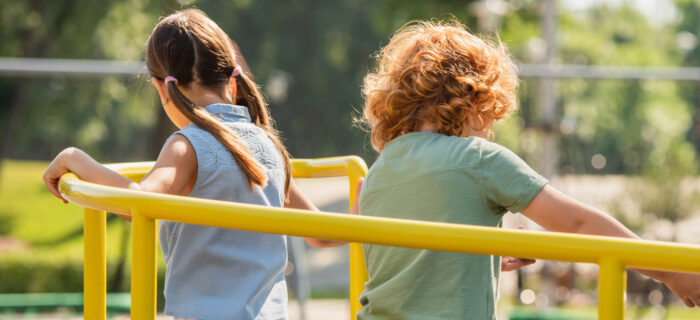Under section 68L of the Family Law Act 1975, an independent children’s lawyer (ICL) is a legal professional appointed by the court to protect the best interests of the child if the parents are seeking a divorce or separation and there are major disputes. One party can apply for an appointment of an ICL or the court may decide to appoint one at its own discretion in situations of neglect and abuse.
The intention is to provide independent legal advice and advocate for the needs and rights of children involved in legal disputes such as child custody and child protection. It is important to note that an independent children’s lawyer or ICL is not appointed by and does not represent the parents who may have separately engaged a family lawyer.
What does an ICL do?
While parenting plans and parenting orders are more common, certain situations may require an ICL. The ICL presents information about your child’s welfare and views to the court. This is based on the information available at the time. ICLs are expected to be impartial, which also means no additional discussions with parents about the case and proceedings. The main goal is to ensure that children’s voices are heard and considered in court proceedings.
The ICL will first meet the child and gather as much evidence and information as possible, including the child’s views, preferences and needs. This information is then presented to the court to help all involved make informed decisions about their welfare. The ICL may also make certain recommendations to the court based on their assessment of the child’s situation.
Who appoints an independent children’s lawyer?
An ICL is not appointed automatically and is often only required in complex cases where the child’s welfare is in question. Typically, the court will appoint an ICL on application by one party or on its own accord if the situation needs it. The ICL is a completely independent representative of the child and is not involved with any other party in the case. The main goal is to represent the best interests of the child. An ICL will likely work with other professionals such as social workers, psychologists, and medical professionals, to gather information and make recommendations to the court.
If a court orders the appointment of an ICL in NSW, the request is usually forwarded to Legal Aid NSW which will then be asked to assign one to the matter. Legal Aid NSW has a number of ICL-trained in-house and independent solicitors on panel that can be appointed to matters when needed. ICLs must complete specialised ICL training and should ideally be experienced in all matters related to family law to help protect children.
What instances require an independent children’s lawyer?

Not all situations require the services of an ICL, but they usually come on board in the situations tabled below:
- Abuse or neglect allegations
- High level of conflict
- Child is of a mature age to express their own views
- Cases of domestic violence
- Mental health issues in relation to one or both parents
In these instances, it may be difficult for both parties to arrive at a logical conclusion in regard to the welfare needs of the child, which is when an ICL plays a crucial role.
What does an independent children’s lawyer do?
An independent children’s lawyer will present the views of the child, gather evidence for the court, help the child participate in court proceedings where needed and act honestly on behalf of the child. Ultimately, the main goal is to protect the child and his or her best interests.
What information is relevant to an ICL?
An ICL will look at the whole situation and gather evidence in order to help the court make an informed decision about a child’s welfare. Relevant information includes the family situation, why an ICL was needed, whether either parent is capable of looking after the child and if there were violent or neglect situations.
How does an independent children’s lawyer gather evidence?

An ICL may need to do a few different things to gather evidence for the court. This may involve speaking with the child directly and allowing them to share their views in a safe and stress-free environment without external influences.
He or she may also contact the child’s support network such as teachers, principals, counsellors, psychologists, treating doctors, DCJ and other relevant parties who may be able to provide evidence on behalf of the child. The ICL may also need to consult with independent experts and examine the parents’ and child’s medical and psychiatric records to prepare reports for the Court. They will then need to assemble all the information and present this material before the Court.
An ICL will need to be flexible and adapt differently to different cases. For example, he or she may proactively need to gather evidence related to the matter, especially if the child cannot communicate their needs or the evidence is unclear. ICLs will also play a role in trying to help parties resolve matters through alternate dispute resolutions and negotiations – all the while acting honestly in the child’s best interests.
Does my child give the ICL instructions?
While the purpose of ICLs is to work in your child’s best interests, they do not have to take direct instructions from them. The role of the ICL is covered in Section 68LA of the Family Law Act where the ICL is not the child’s legal representative and therefore does not need to take instructions from them. An ICL will need to consider all facts such as a child’s age, maturity, and best interests to ensure the child is protected in the long run.
Children can sometimes be overwhelmed when talking to an ICL. The Best for Kids website run by Legal Aid NSW is an excellent resource to explain these matters in the simplest terms, so children feel more prepared.
Can a parent talk to the ICL?
The ICL must remain impartial and independent. If any communication is needed, it may be done through the parent’s lawyer. With no legal representation, an ICL may communicate directly with the parent but must let all parties know of this communication.
Who pays for an independent children’s lawyer?
The ICL is typically appointed by the court, and their fees are paid by the parties involved in the case. In some cases, an ICL may also be funded under the Legal Aid scheme of the state. But more often than not, this is not a free service and is a shared cost between the parties involved. As Hills District family lawyers, we can provide advice if you come across this situation. If you are worried about getting a fair child custody agreement, then seeking professional advice is always recommended.
In summary

An important distinction is that an independent children’s lawyer works independently of a divorce or separation case and only looks after the child’s best interests. If you need a representative for divorce, parenting, or child protection orders, a family lawyer experienced in child custody issues can help. As a child custody lawyer for parents, we have been involved in several cases where an ICL was appointed and clearly understand the process. We’ll explain your rights and obligations in such situations and help you better understand how the appointment of an independent children’s lawyer can impact your case and the next steps to secure the best outcome for your child. Where needed, we can also help with all your child support needs.






